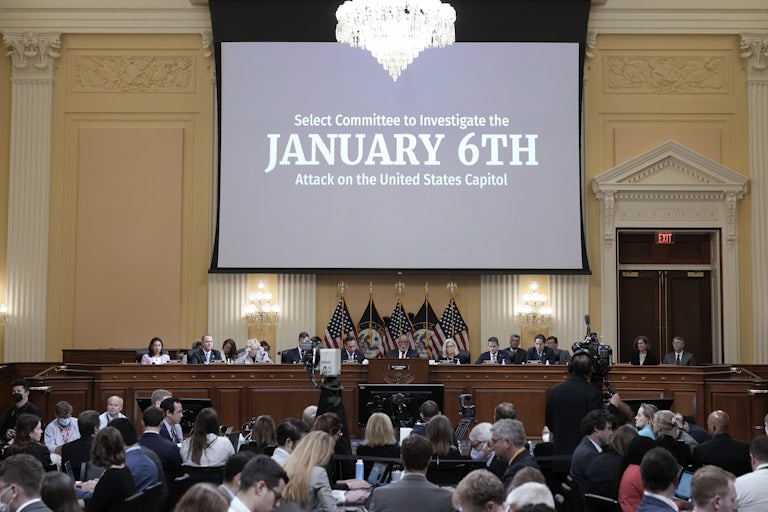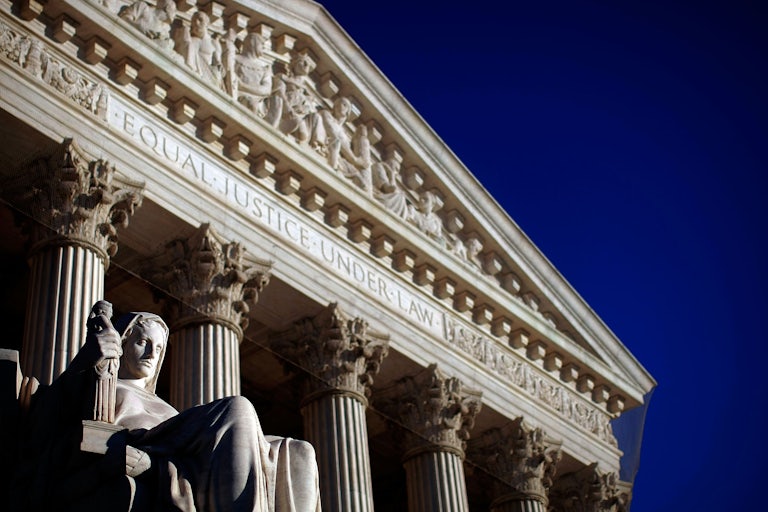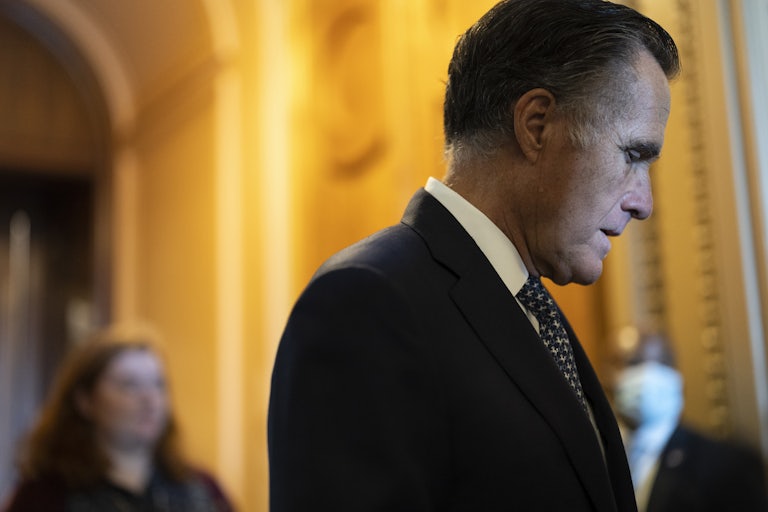The January 6 Committee Can’t Win an Election
The congressional investigation into the Capitol Riot accomplished much, but it was never a good vehicle to deliver the midterms to the Democrats.

With the January 6 committee’s work having concluded on the cliff-hanger of former President Trump getting subpoenaed, the postmortems have been rolling in—and some of them are primarily concerned with the impact of the group’s work on the upcoming midterm elections. The Washington Post’s Dan Balz fretted that while the committee provided “a valuable reminder of what is at stake in November,” it wasn’t immediately clear how that would translate into voters acting on the January 6 revelations, if they acted at all.
As if to reply, his Post colleague Aaron Blake laid out some hard truths: Democrats had not made January 6 “an overarching focus of their campaign messaging,” and while the committee’s work was well publicized, recent polling suggested that “Democrats haven’t really driven the argument home.” Perhaps most dispiriting, there’s evidence that the largely Democratic committee didn’t even sway its own supporters: “If you dig a little deeper, you’ll see that isn’t the full story: It’s also the case that many Democratic voters haven’t been convinced that the problem goes beyond Trump.”
That the January 6 committee hasn’t had much of an effect on the way midterm voters think about Republican threats to democracy isn’t a new insight. At the beginning of August, a Monmouth University survey found that the hearings’ impact on public opinion was negligible at best. Flash forward to today, and you’ll find that January 6 remains a low priority for voters: The most recent Harvard/Harris poll found that only 7 percent of voters thought of January 6 as their most pressing issue.
But rather than indict the committee for these failings, it’s worth considering whether the point of its work was to confer some sort of partisan electoral advantage to Democrats. Throughout its proceedings, it has focused on institutional, not electoral, interests. If anything, it really seems that the committee mightily endeavored to avoid cheapening its work by mixing it up with histrionic election-year politics. Perhaps the responsibility for articulating that “the problem goes beyond Trump”—that it, in fact, connected to everything the GOP is currently about—was never in its purview. Rather, that responsibility belonged to the Democratic Party itself.
President Biden has recently shown that it’s eminently possible to use campaign rhetoric to connect the events of January 6 to the midterm elections. He rather clearly and provocatively articulated this message in a fiery oration last month in Philadelphia, in which he cited the right’s turn toward authoritarianism and the GOP’s well-funded open war against the right to vote as threats to democracy.
The speech had one flaw, however: Biden’s sudden urgency about these threats is a stark contrast with his previously casual assessment of the idea that democracy was under attack. Many of his specific warnings of late, from the GOP’s turn toward “semi-fascism” to the fact that the party was “working right now … in state after state to give power to decide elections in America to partisans and cronies, empowering election deniers to undermine democracy itself,” were matters that he and his fellow Democrats largely failed to either address legislatively or warn about earlier. In fact, the Biden White House had previously dismissed worries about voting rights as a boutique concern, telling The Atlantic’s Peter Nicholas, “Every constituency has their issue.… If you ask immigration folks, they’ll tell you their issue is a life-or-death issue too.”
Democrats largely followed Biden’s lead, treating voting rights as an issue that Republicans could be convinced to support. And so multiple voting rights bills met a predictable demise in the Senate, where too many Democrats believed that preserving the upper chamber’s filibuster tradition was more important than ensuring their own constituents would continue to be able to cast a vote freely.
Even with polls indicating that inflation and jobs are top of voters’ minds, there’s a good argument for foregrounding the threat of Republican illiberalism in the political conversation: The GOP’s anti-democratic tilt ties right back to matters of the economy. For the avowed economic platform of the GOP is every bit as extreme as an insurrection. The Republicans plan to use debt-limit brinkmanship to impose painful austerity upon the American people. They not only lack a plan of their own to alleviate inflationary pressures, but intend to lay further siege to ordinary Americans by forcing Biden to choose between gutting earned-benefit programs like Social Security and Medicare and destroying the economy by defaulting on the government’s debt.
In a perfect world, perhaps the January 6 committee might have penetrated the consciousness of voters to the extent that it shifted voter opinion. Alas, it didn’t, because it was never within its purview to paint this broader picture. But the fact that so many observers bemoan this failure suggests that the vacuum the January 6 hearing failed to fill should have been filled by others. The committee’s work exceeded expectations, but it turns out that it was never a great substitute for just doing politics.
This article first appeared in Power Mad, a weekly TNR newsletter authored by deputy editor Jason Linkins. Sign up here.








